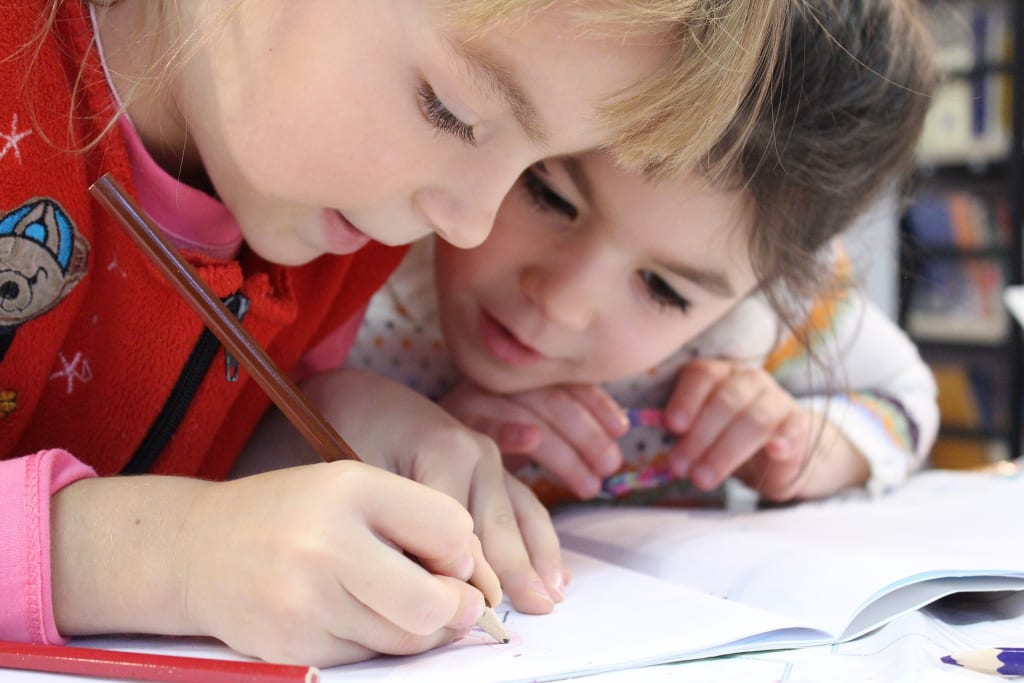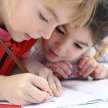Child's Play: 10 Invaluable Life Lessons We Can Learn from Kids
Discover the valuable life lessons we can learn from children, from embracing creativity to cultivating kindness. Learn how to improve your well-being and happiness by adopting the curious and playful mindset of a child.

As adults, we often get caught up in the chaos of our daily lives, forgetting to appreciate the simple things that bring us joy and the valuable lessons. we can learn from children. From creativity to kindness, children have a unique way of looking at the world that can inspire us to be better people. Lets explore 10 invaluable life lessons we can learn from our kids.
Embrace Creativity
Children are naturally creative beings, and we can learn from them by embracing creativity in our own lives. By trying new hobbies or art forms, we can reduce stress and improve our overall well-being.
Be Present
Children are masters of being present at the moment, a skill we could benefit from as adults. By learning to live in the present and let go of our worries and anxieties, we can improve our mental health and overall quality of life.
Live with Curiosity
Children are naturally curious and always eager to learn, a trait that can inspire us to keep learning and growing as adults. By embracing curiosity, we can continue to expand our knowledge and skills.
Embrace Failure
Children are not afraid to fail, and we can learn from them by embracing failure as an opportunity for growth and learning. By accepting failure as a natural part of the learning process, we can become more resilient and successful in our lives.
Enjoy Simple Pleasures
Children find joy in the simplest things, and we can learn from them by appreciating the beauty of the world around us. By finding joy in the little things, we can improve our overall happiness and well-being.
Cultivate Kindness
Children are naturally kind and empathetic, and we can learn from them by cultivating kindness and empathy in our own lives. By reaching out to help others and being compassionate, we can improve our own happiness and the happiness of those around us.
Have Fun
Children know how to have fun and enjoy life without worrying about what others think. As adults, we can learn from them by prioritizing fun and enjoyment in our lives. By letting go of our inhibitions and spending time with people who make us laugh, we can improve our overall well-being.
Learn from Mistakes
Children are always learning and growing, and we can learn from them by accepting mistakes as opportunities for growth and learning. By using mistakes as a chance to improve, we can become more resilient and successful in our lives.
Be Grateful
Children often express gratitude for the things they have and the people in their lives. As adults, we tend to take things for granted and focus on what we don't have. By cultivating an attitude of gratitude, we can improve our overall happiness and well-being.
Believe in Yourself
Children have an innate sense of self-confidence and belief in their abilities. As adults, we often doubt ourselves and our abilities, which can hold us back from achieving our goals. By recognizing our strengths and accomplishments, setting goals, and working towards them, we can become more confident and successful in our lives. In this section, I've included keywords like 'self-esteem' and 'confidence' to optimize it for SEO.
Children have a lot to teach us about life. By embracing creativity, being present, living with curiosity, embracing failure, enjoying simple pleasures, cultivating kindness, having fun, learning from mistakes, being grateful, and believing in ourselves, we can improve our overall happiness and well-being.
Let's take the time to learn from our kids and embrace these valuable lessons, so we can live our best lives.
When I was younger, I used to love spending time with my little cousin. She was only four years old at the time, but she taught me a lesson that has stuck with me ever since. One day, we were playing with blocks and I was getting frustrated because my tower kept falling over. My cousin noticed my frustration and said to me, "It's okay if it falls down, we can just build it again!" I was taken aback by her simple wisdom - she wasn't upset about the tower falling, she was excited to build it again.
That moment taught me a lesson about embracing failure and enjoying the process, rather than fixating on the end result. Kids have a natural curiosity and playfulness that allows them to approach life with an open mind and a willingness to learn. By adopting this mindset, we can overcome our fears of failure and embrace the joy of the journey.
As I sat on the park bench watching the children play, I couldn't help but envy their ability to live in the moment. They ran around, laughing and shouting, fully immersed in their games, without a care in the world. Meanwhile, my mind was consumed with worries about work, relationships, and the future.
As a busy adult, I had forgotten how to be present. I was always multitasking, juggling multiple responsibilities, and never truly focused on any one thing. I realized that I needed to take a page from the children's book and learn to be present.
So, I started small. I made a conscious effort to be fully engaged in whatever I was doing, whether it was cooking dinner, reading a book, or having a conversation with a friend. I tried to quiet my mind and let go of my worries and anxieties, and just be in the moment.
It wasn't easy at first. My mind kept wandering, and I found myself getting distracted by my phone or other external stimuli. But with practice, I started to get better at it. I started to notice the little things around me that I had previously overlooked, like the sound of birds chirping outside my window, the taste of my morning coffee, and the feeling of the sun on my face.
As I became more present, I started to feel more peaceful and content. I was no longer consumed by worries about the past or the future. Instead, I was able to fully enjoy the present moment, and appreciate the simple pleasures of life.
I realized that being present wasn't just a skill that children had naturally. It was a skill that could be learned and cultivated by anyone. And by doing so, we could improve our mental health and overall quality of life. So, I made a commitment to continue practicing mindfulness and being present, and to never forget the valuable lesson that I had learned from the children at the park.
About the Creator
the4always
Curious adventurer and health enthusiast with a passion for learning from the world.






Comments
There are no comments for this story
Be the first to respond and start the conversation.